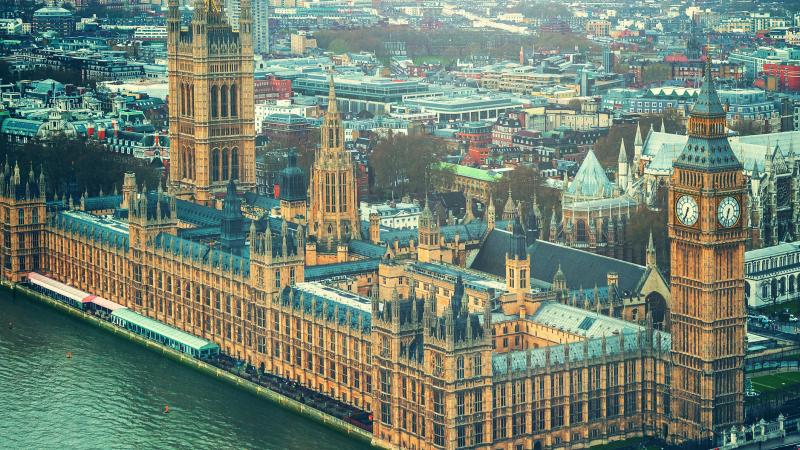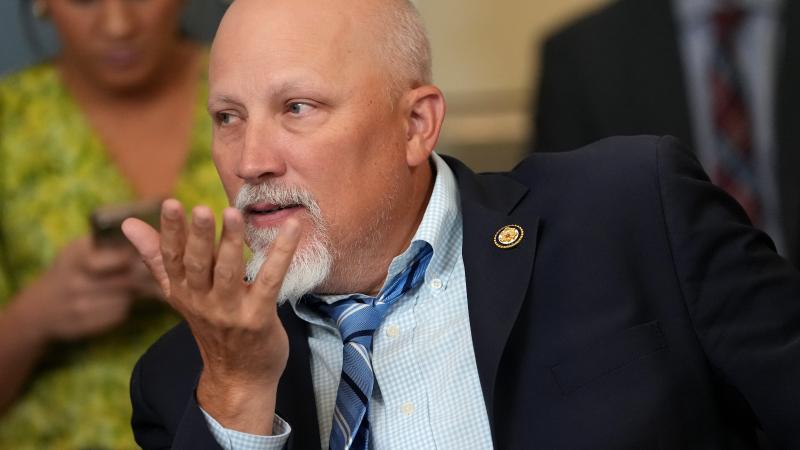Stanford Law tolerates attacks on two judges by faculty, students years apart
"Your work has caused harm," DEI administrator lectures silenced appeals judge.
The Stanford University community, which devoted more than 97% of political donations to Democrats in the past three election cycles, is developing a reputation for deplatforming sitting judges with tacit approval from administrators.
Nearly five years after a Stanford law professor led a successful recall against a liberal California judge for following sentencing guidelines in a rape case, the university's associate dean of diversity, equity and inclusion joined students in shutting down a Federalist Society event with a conservative federal judge.
Even though Superior Court Judge Aaron Persky lost his pension and tennis coaching job and was forced to pay law professor Michele Dauber's six-figure legal fees, the administration's direct involvement in 5th U.S. Circuit Court of Appeals Judge Kyle Duncan's shutdown Thursday has put a harsher spotlight on that incident.
Stanford President Marc Tessier-Lavigne and Stanford Law School Dean Jenny Martinez belatedly apologized to Duncan Saturday after a flurry of reports and documentation of the event, including DEI chief Tirien Steinbach removing Duncan from the podium and lecturing him after promising the community in writing the law school "will not censor" the judge or his student hosts.
While Martinez previously told the community that "well-intentioned" efforts to manage the "tempers" had "gone awry," she and Tessier-Lavigne now admitted that unnamed staff didn't enforce Stanford's free speech policies and "intervened in inappropriate ways" at odds with those policies.
Hours later, however, Associate Dean Jeanne Merino told Federalist Society leadership they could reach out to Steinbach for "support" or to "process" the event, and asked them to refrain from social media usage "until this news cycle winds down."
A similarly disruptive student protest against a Federalist Society event at Yale Law last year had previously created tension with the 5th Circuit, which has a reputation for conservative jurists. Judge James Ho started a boycott of clerks from Yale Law because the university "actively practices" cancellation.
Judges from multiple circuits privately conferred on how to deal with clerkship applications from Yale Law students who participated in the shutdown. Both the Yale and Stanford law incidents involved LGBTQ activists.
Dauber's campaign against Judge Persky for the six-month prison sentence and lifetime sex offender registration he gave Stanford swimmer Brock Turner may have signaled to students the Stanford administration would not defend judges against intimidation.
Stanford refused an ethics probe of Dauber earlier this year on allegations of chronic anti-male bias, harassing female lawyers for accused male clients (including Johnny Depp), and her behavior in the Persky recall. Dauber's name came up several times in reference to Duncan's shutdown on Twitter.
Duncan's invitation to speak on "Covid, Guns, and Twitter" had already prompted such hostility from student activists that DEI chief Steinbach released a statement hours before the event acknowledging that his campus presence "represents a significant hit to their sense of belonging" while pledging not to shut him down.
The former ACLU of Northern California official stirred the pot by uncritically quoting from a statement circulating among students that Duncan has "repeatedly and proudly threatened healthcare and basic rights for marginalized communities," including black voters, women and prisoners. (Reuters identified the authors as LGBTQ group OutLaw.)
Detailed accounts of the event come from recordings, interviews and primary sources posted by the Ethics and Public Policy Center's Ed Whelan and veteran legal blogger David Lat, who said Stanford Law had overtaken Yale Law "for free-speech debacles." Federalist Society leaders and identifying information were featured on a "headshots" poster, according to Lat.
After repeated student interruptions — including cries of "your racism is showing" and "respect black women" — Duncan asked an administrator to quiet them, Steinbach asked him to step down so she could read a statement, video shows. (Whelan said five administrators total were present.)
The Foundation for Individual Rights and Expression, which earlier this month demanded Stanford protect free expression in response to "arson and vandalism" against a College Republicans event, posted a transcript of Steinbach's six-minute address.
"I'm uncomfortable cuz this event is tearing at the fabric of this community that I care about and am here to support," she told the crowd, repeatedly asking "Is the juice worth the squeeze?" and cutting Duncan off when he tried to speak.
Even as she denied the judge's claim that "this is a setup," Steinbach said many students and employees believe his judicial opinions and previous advocacy "land as absolute disenfranchisement of their rights."
Despite assuring Duncan he was "absolutely welcome" at SLS, Steinbach told him "your work has caused harm" and "literally denies the humanity of people," asking him to "listen through your partisan lens" and "see human beings who are asking you to take care."
The DEI chief floated the idea of rewriting Stanford free speech policies because the perceived "harm is so great."
According to Whelan, subsequent disruptions prevented Duncan from continuing after Steinbach ended her remarks. Duncan, Whelan and the right-leaning Stanford Review all called on Stanford to fire Steinbach for her actions Thursday.
In a letter Friday, FIRE reminded Stanford it's covered by California's so-called Leonard Law, which applies First Amendment obligations to secular private colleges. Steinbach's remarks make it "woefully unclear" whether Stanford will act against the heckler's veto and take "swift action" to remove disruptors, FIRE said.
Duncan told the Washington Free Beacon the students behaved like "dogsh**" but accepted the Stanford leaders' apology, telling National Review he wanted to know Stanford's detailed plans "to restore a culture of intellectual freedom."
Stanford and the law school didn't respond to queries about the precedent it set by tolerating Dauber's campaign against Judge Persky and what sanctions student disruptors and Steinbach might face.
Dauber didn't respond when asked what role her anti-Persky campaign may have played and how the two incidents compare.
The Facts Inside Our Reporter's Notebook
Links
- more than 97% of political donations to Democrats
- following sentencing guidelines in a rape case
- lost his pension and tennis coaching job
- pay law professor Michele Dauber's six-figure legal fees
- belatedly apologized to Duncan Saturday
- Tirien Steinbach removing Duncan from the podium
- Martinez previously told the community
- Jeanne Merino told Federalist Society leadership
- similarly disruptive student protest
- Judge James Ho started a boycott
- Judges from multiple circuits privately conferred
- Dauber's allegedly regressive campaign
- Stanford refused a sought ethics probe of Dauber
- "Covid, Guns, and Twitter"
- statement hours before the event
- former ACLU of Northern California official
- Reuters
- LGBTQ group OutLaw
- Ethics and Public Policy Center's Ed Whelan
- David Lat
- video shows
- demanded Stanford protect free expression
- posted a transcript of Steinbach's six-minute address
- Stanford Review
- FIRE reminded Stanford
- Washington Free Beacon
- National Review
















